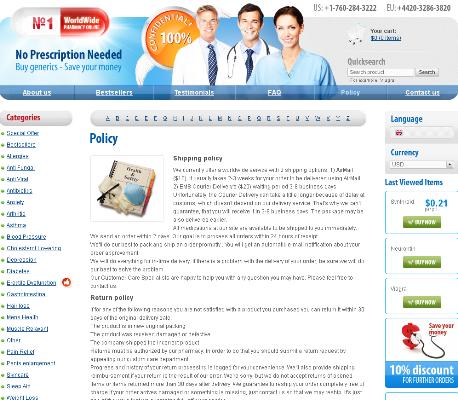Buy Isotroin Online
How Isotroin Treats Severe Acne: Mechanism Explained
Understanding Isotretinoin: a Powerful Acne Treatment
Isotretinoin, often known by its trade name Accutane, is a potent medication primarily used for severe acne unresponsive to other treatments. This powerful elixir works wonders due to its multiple mechanisms of action. An Rx medication, isotretinoin is typically a last resort when standard options like generics fail to produce results. Dermatologists count and pour this miraculously effective compound medication because it targets acne at its source, providing long-term relief for many who struggle with chronic breakouts.
| Mechanism | Description |
|---|---|
| Reducing Sebum Production | Isotretinoin decreases the amount of oil made by the skin's sebaceous glands. |
| Shrinking Oil Glands | Directly reduces the size and activity of sebaceous glands, limiting acne formation. |
| Combating Bacteria | It has antibacterial properties that help reduce acne-causing bacteria on the skin. |
| Anti-inflammatory Effects | Soothe and heal the skin by reducing inflammation. |
Reducing Sebum Production: Isotretinoin's Key Mechanism

To understand the potency of Isotroin in treating severe acne, one key focus is on how it reduces sebum production. Sebum, an oily substance produced by sebaceous glands, is crucial in acne formation. When these glands go into overdrive, they create an ideal environment for acne-causing bacteria. By acting as a powerful script, Isotroin effectively reduces sebum output, shrinking the sebaceous glands at the root. This decrease in oil production not only diminishes the risk of clogged pores but also alleviates skin inflammation, offering a comp approach to severe acne management. Effective and stat results make Isotroin indispensable in acne treatment protocols.
Shrinking Oil Glands: Direct Attack on Acne Formation
Isotroin’s ability to shrink oil glands directly tackles the root cause of severe acne. The comp medication works by reducing the size of sebaceous glands, which are responsible for the production of sebum, an oily substance that can clog pores. When these glands shrink, they produce less sebum, preventing the formation of blackheads and whiteheads.
Moreover, the reduction in gland size leads to fewer clogged pores, minimizing the chances of acne bacteria proliferation. The script for isotroin ensures that sebaceous glands produce oil at a slower rate, giving your skin a better chance to heal and stay clear. This makes the compound not only effective stat, but also a long-term solution for stubborn acne.
Isotroin’s approach is multi-faceted, targeting multiple aspects of acne pathogenesis simultaneously. By shrinking the oil glands, it reduces the environment where acne bacteria thrive. This decrease in oil production, combined with its antibacterial effects, makes isotroin a key player in the battle against severe acne.
Combating Bacteria: an Antibacterial Approach of Isotretinoin

Isotroin exhibits remarkable antibacterial properties, effectively tackling the acne-causing bacteria, Propionibacterium acnes (P. acnes). This bacterium thrives in the oil-rich environment of clogged pores, causing inflammation and leading to the development of severe acne. By reducing the colonization of P. acnes, Isotroin helps to break the cycle of acne formation. The antibacterial action of Isotroin is akin to a powerful elixir, not only diminishing bacterial presence but also preventing future outbreaks. This dual mechanism of action makes Isotroin a comprehensive treatment option, outperforming many generics in the fight against tenacious acne. It’s no wonder the script for Isotroin comes highly recommended by dermatologists.
Anti-inflammatory Effects: Soothe and Heal the Skin
Isotroin serves as a potent anti-inflammatory agent, soothing and healing the skin to alleviate the painful symptoms of severe acne. By disrupting the inflammatory pathways, it reduces redness and swelling, promoting a smoother and healthier complexion. This mechanism often provides significant relief, transforming cystic acne into manageable conditions.
Moreover, the compound medication effectively targets the overactive sebaceous glands, helping to tone down the skin's irritation. The anti-inflammatory properties of Isotroin not only aid in immediate symptom relief but also contribute to long-term skin health by preventing future breakouts.
Incorporating Isotroin into a patient's script can produce remarkable improvements, diminishing the need for constant treatment adjustments. However, it's crucial to follow the sig carefully to maximize benefits while minimizing potential side effects. The drive-thru convenience of pharmacies ensures patients can easily access this vital medication, keeping their skincare regimen on track.
| Factors | Effects |
|---|---|
| Anti-inflammatory Action | Reduces redness and swelling |
| Skin Health | Promotes smoother complexion |
| Long-term Benefits | Prevents future breakouts |
Long-term Results and Potential Side Effects of Isotretinoin
Isotretinoin often delivers impressive long-term results, offering enduring relief from severe acne. Many patients experience permanent reductions in acne severity, thanks to the medication's ability to target the root causes of acne production. The elixir-like efficacy of isotretinoin remains evident even years after completing the course. However, it's critical to be aware of potential side effects. Some individuals may encounter persistent dryness, particularly of the lips and skin, which might need ongoing care. More severe side effects can occur, such as mood changes or increased susceptibility to infections, which should prompt immediate medical attention.
Moreover, due to the potent effects of isotretinoin, it functions almost like a comp in its comprehensive approach to treating acne. It is advisable to follow the sig meticulously and maintain regular consultations with healthcare providers. This ensures any adverse effects are managed promptly, allowing patients to enjoy the long-term benefits while minimizing risks. The balance between efficacy and potential side effects makes isotretinoin a powerful but demanding treatment.

